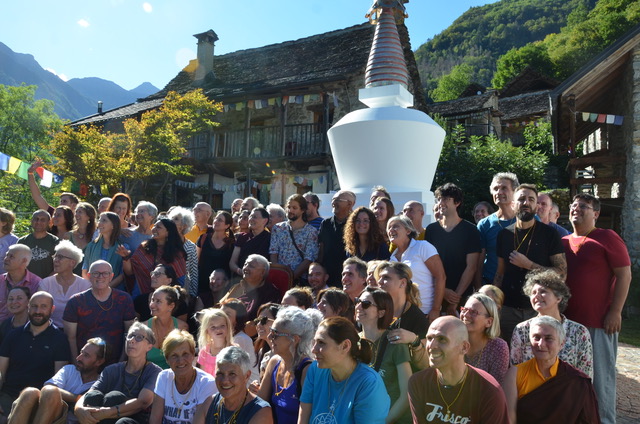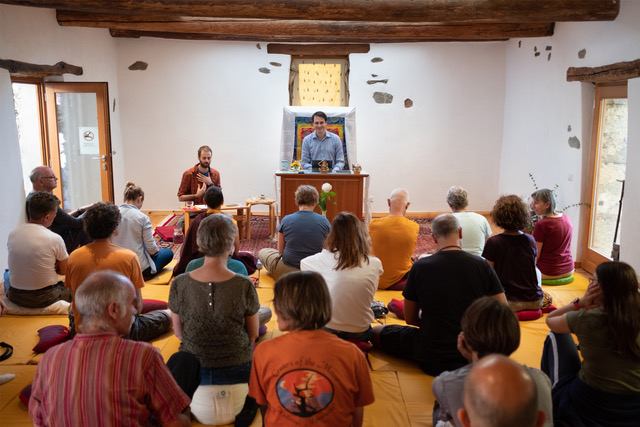Origin of the name
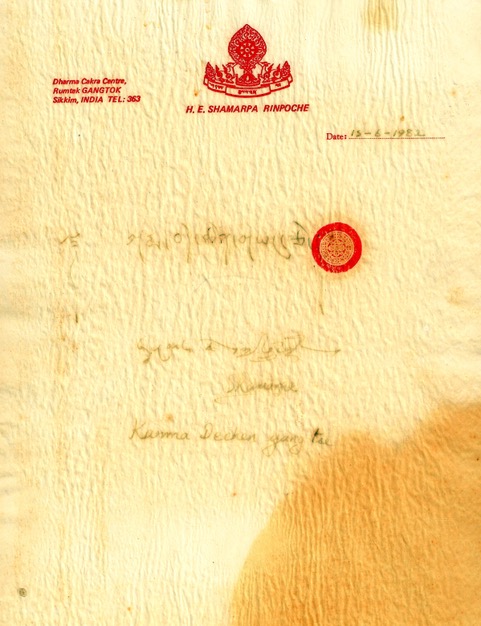
In June 1982, Gerard Frei and Irene Frei were in Rumtek for the cremation ceremonies of the 16th Karmapa. They met Shamar Rinpoche and asked for his support for the project to rebuild the abandoned mountain village of Bordo in Valle Antrona and to establish a Dharma-centred community there. Shamar Rinpoche was enthusiastic about the plan to create a lay centre in this remote place. He gave the project his blessing and the name ‘Karma Dechen Yangtse’.
This laid the spiritual foundation for a project that has not only kept the residents, visitors and friends involved until today, but has also had a wide impact and been the inspiration for numerous projects and lives over the decades. How many have come into contact with the Dharma in these more than 40 years in Bordo? How many have been inspired by an ever-transforming community? How many have reflected back during a stay and realised that a simpler and more essential lifestyle would give them more satisfaction and fulfilment? How many have attended a Dharma course or retreat and then decided to deepen that path and dedicate themselves fully to practice?
Shamar Rinpoche remained in contact with the founders and the community later on, supporting them with advice and rejoicing with them over the concretisation and development of the project.
Excerpt from the interview Irene Frei had with Shamar Rinpoche in Rumtek in April 1983:
Esteemed Sharmar Rinpoche
You have given us a lot of support, guidance and blessings from the very beginning to rebuild the abandoned village of Bordo and to establish a Dharma centre there. What do you see as the special potential of this project?
Rinpoche: This is my vision for this place where you are realising a little dharma village: it will be very helpful for people who are experiencing great suffering due to samsaric problems, who have no way to liberate themselves and let go of their difficulties. They can come there to experience the peace of nature and learn the way to realise Buddha-enlightenment.
Please give a brief explanation of the name KARMA DECHEN YANGTSE.
Rinpoche: This is very good, indeed extraordinary. The 3rd Karmapa had a big retreat centre in Tibet with this name. So I gave you this rare name. Dechen Yangtse means supreme bliss. So this will be a very strong Pure Land for practitioners, which will have a lot of activity of Karmapa’s bodhisattva power and compassion. It will become a strong Karma Kamtsang centre. I wished to bring about this result when Gerhardt came to me for refuge and I urged him to do so. He and many other dharma students were already giving a lot of energy to this project.
What is the benefit of practical earth-bound tasks like gardening, cooking, building, bringing up children etc. for our spiritual development?
Rinpoche: To purify yourself, you should have a strong, kind, loving and compassionate mind, thinking for others rather than for yourself. Having motivation to help others is not enough. You should sacrifice much of your energy to create a beneficial space for others. All your strong efforts to benefit others include your purification practice. This goal will make any meditation practice you do really flourish…. This will make the place very wonderful and must clear the mind. People will be able to relax well. This will give you interest to practise and it will be better here in this area than in the crowded city.
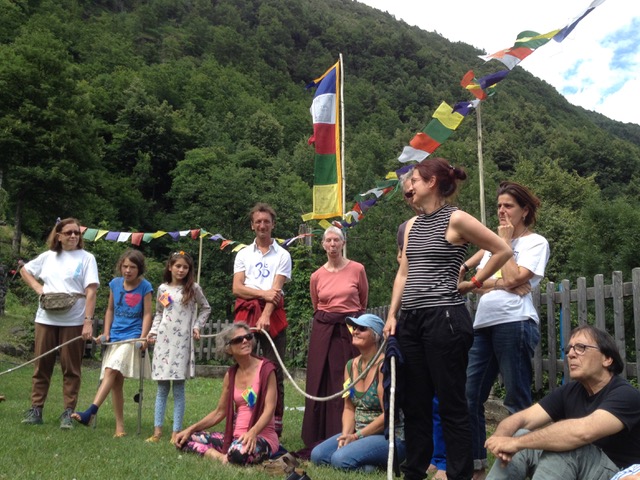
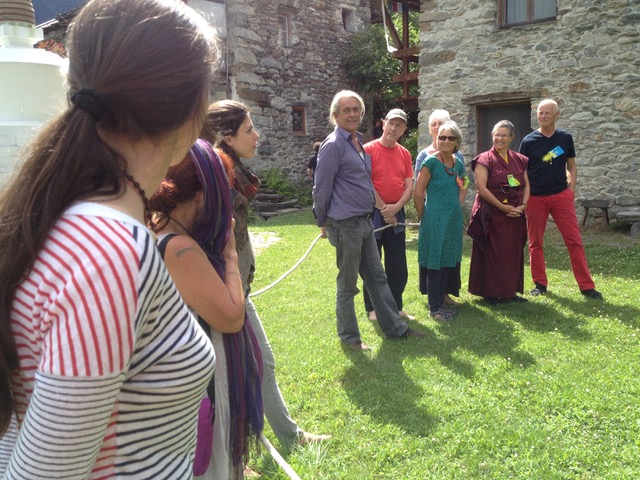
A look back over the past 40 years shows how many people have been involved in making these wishes come true. They have built up the abandoned mountain village, invited often highly realised teachers, maintained and improved the village structures and the surrounding walls, installed internet, homepage and solar panels, and in their daily togetherness they have followed the Buddhist principles on whose foundations the project is built.
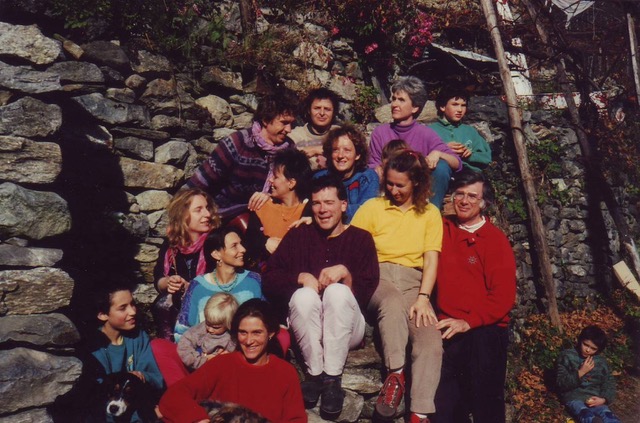
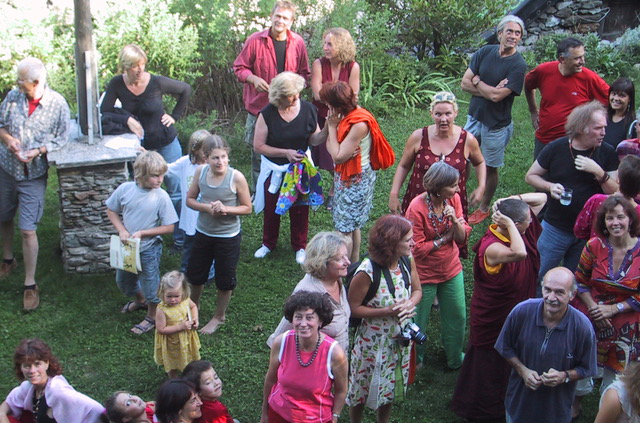
After a good 20 years, the spiritual orientation in the Karma Kagyu tradition was further deepened by the visits of the 17th Karmapa Trinley Thaye Dorje and of Kunsig Shamar Rinpoche, after whose visit Cooperativa Bordo decided to join the newly founded Bodhi Path movement. The Bodhi Path curriculum, with a focus on silent meditation, mind training (lojong) and the Chenresig practice, allows all interested people in the village to participate in the daily meditations. A deepening of the practice is possible at the numerous Dharma courses and retreats that take place from spring to autumn. The Dharma area is also open for individual retreats for experienced practitioners of all Buddhist traditions.
